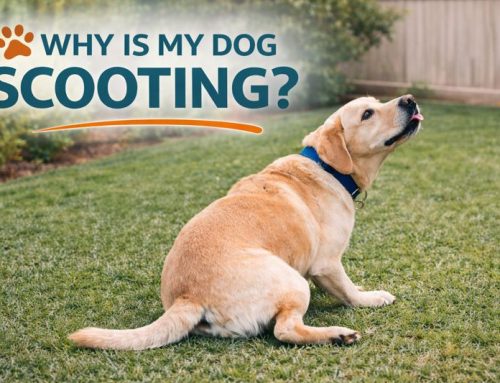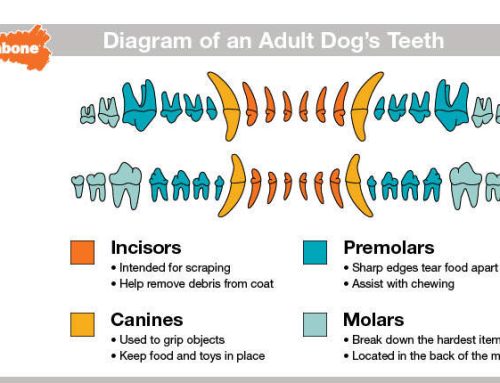
Table of Contents
- What To Give A Dog With An Upset Stomach
- What Causes Upset Stomachs in Dogs?
- Signs of an Upset Stomach in Dogs
- What Can You Give a Dog With an Upset Stomach?
- Should I Withhold Food From My Dog?
- Can Dogs Take Human Medications for Upset Stomach?
- When to See a Veterinarian
- How to Prevent Upset Stomachs in Dogs
- FAQs About Dogs With Upset Stomachs
- The Bottom Line: Start Simple, But Don’t Ignore the Signs
What To Give A Dog With An Upset Stomach
Every dog owner knows the feeling—your pup seems off, refuses food, or starts making those unmistakable gulping sounds before vomiting on the carpet. An upset stomach is one of the most common issues dogs experience, and while it’s often mild and short-lived, knowing what to give your dog (and when to call the vet) can make a big difference in helping them feel better.
Just like people, dogs can get stomach aches from something as simple as eating too fast—or something more serious. Here’s how to recognize the signs, what safe remedies you can try at home, and when it’s time to get professional care.
What Causes Upset Stomachs in Dogs?
A dog’s digestive system can be sensitive to sudden changes, unusual foods, or stress. Common causes of stomach upset include:
- Eating something they shouldn’t (like grass, garbage, or spoiled food)
- Sudden diet changes or new treats
- Food intolerances or allergies
- Eating too quickly or overeating
- Stress or anxiety
- Viral or bacterial infections
- Parasites such as worms
- Underlying medical conditions like pancreatitis or inflammatory bowel disease
Mild cases usually resolve within a day or two, but ongoing symptoms should always be checked by your veterinarian.
Signs of an Upset Stomach in Dogs
Every dog reacts differently, but some common symptoms include vomiting, diarrhea, loss of appetite, drooling, or excessive swallowing. You might also notice your dog eating grass, acting lethargic, or showing signs of abdominal discomfort such as whining or stretching frequently.
If symptoms are mild and your dog otherwise seems alert and hydrated, you can often manage the issue at home. However, if the symptoms last more than 24 hours or worsen, it’s time to seek veterinary help.
What Can You Give a Dog With an Upset Stomach?
If your dog’s stomach issue seems mild, there are a few safe, vet-approved remedies you can try at home to soothe their digestive system. Always consult your vet before introducing new foods or medications, especially if your dog has ongoing health conditions.
1. Bland Diet (Boiled Chicken and Rice)
The classic “chicken and rice” diet is one of the simplest and safest options. Use skinless, boneless chicken breast and plain white rice, boiled separately with no seasoning, butter, or oil. Feed small portions once your dog hasn’t vomited for at least 6–8 hours.
The bland combination is easy to digest and helps firm up loose stools. You can feed this for 1–3 days before slowly transitioning back to your dog’s regular food.
2. Plain Canned Pumpkin
Pure canned pumpkin (not pumpkin pie filling) is a gentle source of fiber that can help both diarrhea and constipation. Add 1–4 teaspoons depending on your dog’s size to their food. It helps regulate digestion and soothe the stomach lining.
3. Boiled Potatoes or Sweet Potatoes
Plain boiled potatoes are another mild, easy-to-digest option. They contain beneficial nutrients and starches that can help calm the stomach. Avoid butter, salt, or seasoning.
4. Bone Broth or Chicken Broth
Warm, low-sodium broth can encourage hydration and provide nourishment when your dog refuses solid food. Make sure the broth doesn’t contain onion, garlic, or excessive salt, as these are toxic to dogs.
5. Probiotics
Probiotics help restore healthy gut bacteria, especially after vomiting or diarrhea. You can find dog-specific probiotic powders or treats through your veterinarian or pet store. They’re often safe for daily use and can prevent future stomach upsets.
Should I Withhold Food From My Dog?
For mild vomiting or diarrhea, it’s often best to withhold food for 8–12 hours (but not water) to allow your dog’s stomach to rest. After that, you can reintroduce small portions of a bland diet.
If your dog is a small breed, puppy, or has blood sugar issues, don’t fast them without veterinary guidance, as they can become hypoglycemic quickly.
Can Dogs Take Human Medications for Upset Stomach?
Never give your dog human medications like Pepto-Bismol, Imodium, or Tums without a vet’s recommendation. Some human digestive medicines contain ingredients that can be dangerous to dogs, especially those with liver or kidney issues.
If your vet does approve a medication, they will give you an exact dosage based on your dog’s weight. It’s always safest to confirm before giving anything over-the-counter.
When to See a Veterinarian
While occasional stomach upset is normal, you should contact your vet right away if your dog:
- Vomits repeatedly or for more than 24 hours
- Has bloody stool or vomit
- Refuses food and water
- Appears weak, lethargic, or dehydrated
- Has a bloated abdomen or obvious pain
- Shows other symptoms like fever or trembling
These could be signs of a more serious issue such as pancreatitis, gastrointestinal obstruction, or poisoning—all of which need professional treatment.
How to Prevent Upset Stomachs in Dogs
Prevention is often as simple as consistency. Feed a balanced diet, avoid sudden food changes, and limit table scraps. Keep trash cans secured and food items out of reach—dogs are notorious scavengers.
If your dog tends to eat too quickly, try using a slow-feeder bowl to reduce gulping and air swallowing. Routine vet checkups, parasite prevention, and a calm feeding environment can also keep your dog’s digestive system healthy.
FAQs About Dogs With Upset Stomachs
What can I give my dog for an upset stomach and vomiting?
Start with fasting for 8–12 hours, then offer small amounts of boiled chicken and rice or bone broth. If vomiting continues or your dog seems unwell, contact your vet.
Can I give my dog pumpkin for diarrhea?
Yes. Plain canned pumpkin is a great natural remedy for diarrhea and mild constipation. Add 1 teaspoon per 10 pounds of body weight to their food.
How long does a dog’s upset stomach last?
Most mild stomach issues clear up within 24–48 hours. If symptoms last longer, a vet visit is recommended to rule out infection or other conditions.
Should I give my dog water after vomiting?
Yes—but only in small, frequent sips. Too much water at once may trigger more vomiting. Offer ice cubes or a few tablespoons of water at a time.
When should I worry about my dog’s stomach problems?
Persistent vomiting, blood in stool, dehydration, or loss of appetite for more than a day are red flags. Always contact your vet if you’re unsure.
The Bottom Line: Start Simple, But Don’t Ignore the Signs
Most dogs experience mild stomach upsets from time to time, often caused by dietary indiscretion or minor irritation. A bland diet, hydration, and rest are usually all that’s needed.
However, if symptoms last longer than a day or seem severe, don’t wait it out—call your veterinarian. With prompt care and a little patience, your dog’s digestive system will be back to normal in no time.






